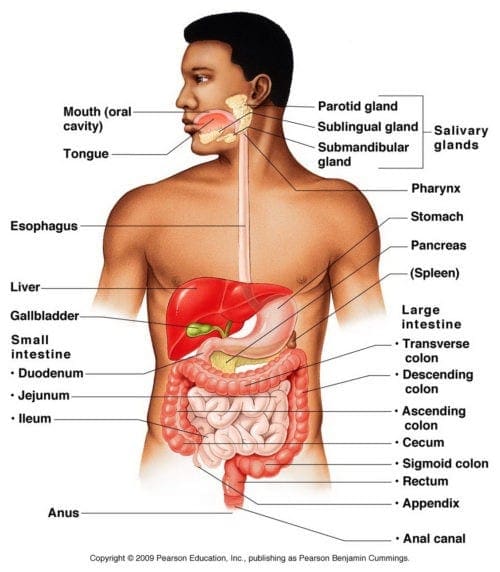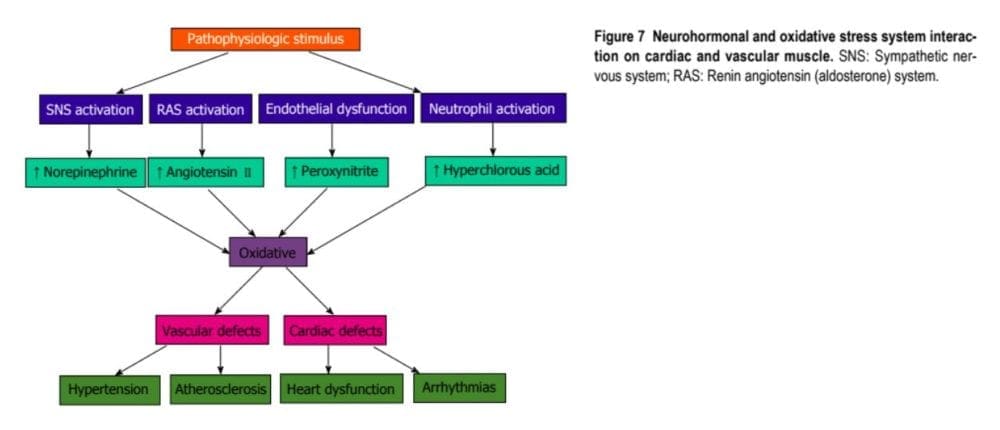GM Crops: Proponents claim that genetically modified (GM) crops:
- are safe to eat and more nutritious
- beneft the environment
- reduce use of herbicides and insecticides
- increase crop yields, thereby helping farmers and solving the food crisis
- create a more affuent, stable economy
- are just an extension of natural breeding, and have no risks different from naturally bred crops.
However, a large and growing body of scientifc research and on-the-ground experience indicate that GMOs fail to live
up to these claims. Instead, GM crops:
- can be toxic, allergenic or less nutritious than their natural counterparts
- can disrupt the ecosystem, damage vulnerable wild plant and animal populations and harm biodiversity
- increase chemical inputs (pesticides, herbicides) over the long term
- deliver yields that are no better, and often worse, than conventional crops
- cause or exacerbate a range of social and economic problems
- are laboratory-made and, once released, harmful GMOs cannot be recalled from the environment.
The scientifically demonstrated risks and clear absence of real benefits have led experts to see GM as a clumsy, outdated technology. They present risks that we need not incur, given the availability of effective, scientifically proven, energy-efficient and safe ways of meeting current and future global food needs.
This paper presents the key scientific evidence � 114 research studies and other authoritative documents � documenting the limitations and risks of GM crops and the many safer, more effective alternatives available today.
Is GM An Extension Of Natural Plant Breeding?
Natural reproduction or breeding can only occur between closely related forms of life (cats with cats, not cats with dogs; wheat with wheat, not wheat with tomatoes or fish). In this way, the genes that offspring inherit from parents, which carry information for all parts of the body, are passed down the generations in an orderly way.
GM is not like natural plant breeding. GM uses laboratory techniques to insert artificial gene units to re-program the DNA blueprint of the plant with completely new properties. This process would never happen in nature. The artificial gene units are created in the laboratory by joining fragments of DNA, usually derived from multiple organisms, including viruses, bacteria, plants and animals. For example, the GM gene in the most common herbicide resistant soya beans was pieced together from a plant virus, a soil bacterium and a petunia plant.
The GM transformation process of plants is crude, imprecise, and causes widespread mutations, resulting in major changes to the plant�s DNA blueprint1. These mutations unnaturally alter the genes� functioning in unpredictable and potentially harmful ways2, as detailed below. Adverse effects include poorer crop performance, toxic effects, allergic reactions, and damage to the environment.Are GM foods safe to eat?Contrary to industry claims, GM foods are not properly tested for human safety before they are released for sale3 4. In fact, the only published study directly testing the safety of a GM food on humans found potential problems5. To date, this study has not been followed up. Typically the response to the safety question is that people have been eating GM foods in the United States and elsewhere for more than ten years without ill effects and that this proves that the products are safe. But GM foods are not labelled in the US and other nations where they are widely eaten and consumers are not monitored for health effects.
Because of this, any health effects from a GM food would have to meet unusual conditions before they would be noticed. The health effects would have to:
� occur immediately after eating a food that was known to be GM (in spite of its not being labeled). This kind of response is called acute toxicity.
� cause symptoms that are completely different from common diseases. If GM foods caused a rise in common or slow-onset diseases like allergies or cancer, nobody would know what caused the rise.
� be dramatic and obvious to the naked eye. Nobody examines a person�s body tissues with a microscope for harm after they eat a GM food. But just this type of examination is needed to give early warning of problems such as pre-cancerous changes.
To detect important but more subtle effects on health, or effects that take time to appear (chronic effects), long-term controlled studies on larger populations are required.
Under current conditions, moderate or slow-onset health effects of GM foods could take decades to become known, just as it took decades for the damaging effects of trans-fats (another type of artificial food) to be recognized. �Slow poison� effects from trans-fats have caused millions of premature deaths across the world6 .
Another reason why any harmful effects of GM foods will be slow to surface and less obvious is because, even in the United States, which has the longest history of GM crop consumption, GM foods account for only a small part of the US diet (maize is less than 15% and soya bean products are less than 5%).
Nevertheless, there are signs that all is not well with the US food supply. A report by the US Centers for Disease Control shows that food-related illnesses increased 2- to 10-fold in the years between 1994 (just before GM food was commercialized) and 19997 . Is there a link with GM food? No one knows, because studies on humans have not been done.
Animal Studies On GM Foods Give Cause For Concern
Although studies on humans have not been done, scientists are reporting a growing number of studies that examine the effects of GM foods on laboratory animals. These studies, summarized below, raise serious concerns regarding the safety of GM foods for humans as well as animals.
Small Animal Feeding Studies
� Rats fed GM tomatoes developed stomach ulcerations8
� Liver, pancreas and testes function was disturbed in mice fed GM soya9 10 11
� GM peas caused allergic reactions in mice12
� Rats fed GM oilseed rape developed enlarged livers, often a sign of toxicity13
� GM potatoes fed to rats caused excessive growth of the lining of the gut similar to a pre-cancerous condition14 15
� Rats fed insecticide-producing GM maize grew more slowly, suffered problems with liver and kidney function, and showed higher levels of certain fats in their blood16
� Rats fed GM insecticide-producing maize over three generations suffered damage to liver and kidneys and showed alterations in blood biochemistry17
� Old and young mice fed with GM insecticide-producing maize showed a marked disturbance in immune system cell populations and in biochemical activity18
� Mice fed GM insecticide-producing maize over four generations showed a buildup of abnormal structural changes in various organs (liver, spleen, pancreas), major changes in the pattern of gene function in the gut, reflecting disturbances in the chemistry of this organ system (e.g. in cholesterol production, protein production and breakdown), and, most significantly, reduced fertility19
� Mice fed GM soya over their entire lifetime (24 months) showed more acute signs of aging in their liver20
� Rabbits fed GM soya showed enzyme function disturbances in kidney and heart21.
Feeding Studies With Farm Animals
Farm animals have been fed GM feed for many years. Does this mean that GM feed is safe for livestock? Certainly it means that effects are not acute and do not show up immediately. However, longer-term studies, designed to assess slow-onset and more subtle health effects of GM feed, indicate that GM feed does have adverse effects, confirming the results described above for laboratory animals.
The following problems have been found:
� Sheep fed Bt insecticide-producing GM maize over three generations showed disturbances in the functioning of the digestive system of ewes and in the liver and pancreas of their lambs22.
� GM DNA was found to survive processing and to be detectable in the digestive tract of sheep fed GM feed. This raises the possibility that antibiotic resistance and Bt insecticide genes can move into gut bacteria23, a process known as horizontal gene transfer. Horizontal gene transfer can lead to antibiotic resistant disease causing bacteria (�superbugs�) and may lead to Bt insecticide being produced in the gut with potentially harmful consequences. For years, regulators and the biotech industry claimed that horizontal gene transfer would not occur with GM DNA, but this research challenges this claim
� GM DNA in feed is taken up by the animal�s organs. Small amounts of GM DNA appear in the milk and meat that people eat24 25 26. The effects on the health of the animals and the people who eat them have not been researched.
Do Animal Feeding Studies Highlight Potential Health Problems For People?
Before food additives and new medicines can be tested on human subjects, they have to be tested on mice or rats. If harmful effects were to be found in these initial animal experiments, then the drug would likely be disqualified for human use. Only if animal studies reveal no harmful effects can the drug be further tested on human volunteers.
But GM crops that caused ill effects in experimental animals have been approved for commercialization in many countries. This suggests that less rigorous standards are being used to evaluate the safety of GM crops than for new medicines.
In fact, in at least one country � the United States � safety assessment of GMOs is voluntary and not required by law, although, to date, all GMOs have undergone voluntary review. In virtually all countries, safety assessment is not scientifically rigorous. For instance, the animal feeding studies that GM crop developers routinely conduct to demonstrate the safety of their products are too short in duration and use too few subjects to reliably detect important harmful effects.27
While industry conducts less than rigorous studies on its own GM products, 28 it has, in parallel, systematically and persistently interfered with the ability of independent scientists to conduct more rigorous and incisive independent research on GMOs. Comparative and basic agronomic studies on GMOs, assessments of safety and composition, and assessments of environmental impact have all been restricted and suppressed by the biotechnology industry.29 30
Patent rights linked with contracts are used to restrict access of independent researchers to commercialized GM seed. Permission to study patented GM crops is either withheld or made so difficult to obtain that research is effectively blocked. In cases where permission is finally given, biotech companies keep the right to block publication, resulting in much significant research never being published.31 32
The industry and its allies also use a range of public relations strategies to discredit and/or muzzle scientists who do publish research that is critical of GM crops.33
Are GM Foods More Nutritious?
There are no commercially available GM foods with improved nutritional value. Currently available GM foods are no better and in some cases are less nutritious than natural foods. Some have been proven in tests to be toxic or allergenic.
Examples include:
� GM soya had 12�14% lower amounts of cancer-fighting isoflavones than non-GM soya34
� Oilseed rape engineered to have vitamin A in its oil had much reduced vitamin E and altered oil-fat composition35
� Human volunteers fed a single GM soya bean meal showed that GM DNA can survive processing and is detectable in the digestive tract. There was evidence of horizontal gene transfer to gut bacteria36 37. Horizontal gene transfer of antibiotic resistance and Bt insecticide genes from GM foods into gut bacteria is an extremely serious issue. This is because the modified gut bacteria could become resistant to antibiotics or become factories for Bt insecticide. While Bt in its natural form has been safely used for years as an insecticide in farming, Bt toxin genetically engineered into plant crops has been found to have potential ill health effects on laboratory animals38 39 40
� In the late 1980s, a food supplement produced using GM bacteria was toxic41, initially killing 37 Americans and making more than 5,000 others seriously ill.
� Several experimental GM food products (not commercialized) were found to be harmful:
� People allergic to Brazil nuts had allergic reactions to soya beans modified with a Brazil nut gene42
� The GM process itself can cause harmful effects. GM potatoes caused toxic reactions in multiple organ systems43 44. GM peas caused a 2-fold allergic reaction � the GM protein was allergenic and stimulated an allergic reaction to other food components45. This raises the question of whether GM foods cause an increase in allergies to other substances.
Can GM Foods Help Alleviate The World Food Crisis?
The root cause of hunger is not a lack of food, but a lack of access to food. The poor have no money to buy food and increasingly, no land on which to grow it. Hunger is fundamentally a social, political, and economic problem, which GM technology cannot address.

Recent reports from the World Bank and the United Nations Food and Agriculture Organization have identified the biofuels boom as the main cause of the current food crisis46 47. But GM crop producers and distributors continue to promote the expansion of biofuels. This suggests that their priority is to make a profit, not to feed the world.
GM companies focus on producing cash crops for animal feed and biofuels for affluent countries, not food for people.
GM crops contribute to the expansion of industrial agriculture and the decline of the small farmer around the world. This is a serious development as there is abundant evidence that small farms are more efficient than large ones, producing more crops per hectare of land48 49 50 51 52.
Do GM Crops Increase Yield Potential?
At best, GM crops have performed no better than their non-GM counterparts, with GM soya beans giving consistently lower yields for over a decade54. Controlled comparative field trials of GM/non-GM soya suggest that 50% of the drop in yield is due to the genetic disruptive effect of the GM transformation process55. Similarly, field tests of Bt insecticide-producing maize hybrids showed that they took longer to reach maturity and produced up to 12% lower yields than their non-GM counterpart56.
A US Department of Agriculture report confirms the poor yield performance of GM crops, saying, �GE crops available for commercial use do not increase the yield potential of a variety. In fact, yield may even decrease…. Perhaps the biggest issue raised by these results is how to explain the rapid adoption of GE crops when farm financial impacts appear to be mixed or even negative57.�
The failure of GM to increase yield potential was emphasized in 2008 by the United Nations International Assessment of Agricultural Knowledge, Science and Technology for Development (IAASTD) report58. This report on the future of farming, authored by 400 scientists and backed by 58 governments, stated that yields of GM crops were �highly variable� and in some cases, �yields declined�. The report noted, �Assessment of the technology lags behind its development, information is anecdotal and contradictory, and uncertainty about possible benefits and damage is unavoidable.�
Failure To Yield
The definitive study to date on GM crops and yield is �Failure to Yield: Evaluating the Performance of Genetically Engineered Crops�. Published in 2009, the study is authored by former US EPA and Center for Food Safety scientist, Dr Doug Gurian-Sherman. It is based on published, peer-reviewed studies conducted by academic scientists and using adequate experimental controls.
In the study, Dr Gurian-Sherman distinguishes between intrinsic yield (also called potential yield), defined as the highest yield which can be achieved under ideal conditions, with operational yield, the yield achieved under normal field conditions when the farmer factors in crop reductions due to pests, drought, or other environmental stresses.
The study also distinguishes between effects on yield caused by conventional breeding methods and those caused by GM traits. It has become common for biotech companies to use conventional breeding and marker assisted breeding to produce higher-yielding crops and then finally to engineer in a gene for herbicide tolerance or insect resistance. In such cases, higher yields are not due to genetic engineering but to conventional breeding. �Failure to Yield� teases out these distinctions and analyses what contributions genetic engineering and conventional breeding make to increasing yield.
Based on studies on corn and soybeans, the two most commonly grown GM crops in the United States, the study concludes that genetically engineering herbicide-tolerant soybeans and herbicide-tolerant corn has not increased yields. Insect-resistant corn, meanwhile, has improved yields only marginally. The increase in yields for both crops over the last 13 years, the report finds, was largely due to traditional breeding or improvements in agricultural practices.
The author concludes: �commercial GE crops have made no inroads so far into raising the intrinsic or potential yield of any crop. By contrast, traditional breeding has been spectacularly successful in this regard; it can be solely credited with the intrinsic yield increases in the United States and other parts of the world that characterized the agriculture of the twentieth century.�59
Critics of the study have objected that it does not use data from developing countries. The Union of Concerned Scientists responds that there are few peer-reviewed papers evaluating the yield contribution of GM crops in developing countries � not enough to draw clear and reliable conclusions. However, the most widely grown food/feed crop in developing countries, herbicide-tolerant soybeans, offers some hints. Data from Argentina, which has grown more GM soybeans than any other developing country, suggest that yields for GM varieties are the same or lower than for conventional non-GE soybeans.60
�If we are going to make headway in combating hunger due to overpopulation and climate change, we will need to increase crop yields,� says Dr Gurian-Sherman. �Traditional breeding outperforms genetic engineering hands down.�61
If GM cannot improve intrinsic (potential) yield even in the affluent United States, where high-input, irrigated, heavily subsidized farming is the norm, it would seem irresponsible to assume that it would improve yields in the developing world, where increased food production is most needed. Initiatives promoting GM crops for the developing world are experimental and appear to be founded on expectations that are not consistent with data obtained in the West.
In the West, crop failure is often underwritten by governments, which bail out farmers with compensation. Such support systems are rare in the developing world. There, farmers may literally bet their farms and their entire livelihoods on a crop. Failure can have severe consequences.
Three GM Crops For Africa
GM sweet potato The virus-resistant sweet potato has been the ultimate GM showcase project for Africa, generating a vast amount of global media coverage. Florence Wambugu, the Monsanto trained scientist fronting the project, has been proclaimed an African heroine and the savior of millions, based on her claims about the GM sweet potato doubling output in Kenya. Forbes magazine even declared her one of a tiny handful of people around the globe who would �reinvent the future�.62 It eventually emerged, however, that the claims being made for the GM sweet potato were untrue, with field trial results showing the GM crop to be a failure.63 64
In contrast with the unproven GM sweet potato variety, a successful conventional breeding program in Uganda had produced a new high-yielding variety which is virus resistant and has �raised yields by roughly 100%�. The Ugandan project achieved success at a small cost and in just a few years. The GM sweet potato, in contrast, in over 12 years in the making, consumed funding from Monsanto, the World Bank, and USAID to the tune of $6 million.65
GM Cassava
The potential of genetic engineering to massively boost the production of cassava � one of Africa�s most important foods � by defeating a devastating virus has been heavily promoted since the mid-1990s. There has even been talk of GM solving hunger in Africa by increasing cassava yields as much as tenfold.66 But almost nothing appears to have been achieved. Even after it became clear that the GM cassava had suffered a major technical failure67, media stories continued to appear about its curing hunger in Africa.68 69 Meanwhile, conventional (non-GM) plant breeding has quietly produced virus resistant cassavas that are already making a remarkable difference in farmers� fields, even under drought conditions.70
Bt Cotton
In Makhatini, South Africa, often cited as the showcase Bt cotton project for small farmers, 100,000 hectares were planted with Bt cotton in 1998. By 2002, that had crashed to 22,500 hectares, an 80% reduction in 4 years. By 2004, 85% of farmers who used to grow Bt cotton had given up. The farmers found pest problems and no increase in yield. Those farmers who still grew the crop did so at a loss, continuing only because the South African government subsidized the project and there was a guaranteed market for the cotton.71
A study published in Crop Protection journal concluded, �cropping Bt cotton in Makhathini Flats did not generate sufficient income to expect a tangible and sustainable socioeconomic improvement due to the way the crop is currently managed. Adoption of an innovation like Bt cotton seems to pay only in an agro-system with a sufficient level of intensification.�72
How Will Climate Change Impact Agriculture?
Industrial agriculture is a major contributor to global warming, producing up to 20 per cent of greenhouse gas emissions, and some methods of increasing yield can exacerbate this negative impact. For example, crops that achieve higher intrinsic yield often need more fossil fuel based nitrogen fertilizer, some of which is converted by soil microbes into nitrous oxide, a greenhouse gas nearly 300 times more potent than carbon dioxide. Minimizing global agriculture�s future climate impact will require investment in systems of agriculture less dependent on industrial fertilizers and agroecological methods of improving soil water-holding capacity and resilience.
GM seeds are created by agrochemical companies and are heavily dependent on costly external inputs such as synthetic fertilizer, herbicides, and pesticides. It would seem risky to promote such crops in the face of climate change.
Peak Oil & Agriculture
According to some analysts, peak oil, when the maximum rate of global petroleum extraction is reached, has already arrived. This will have drastic effects on the type of agriculture we practice. GM crops are designed to be used with synthetic herbicides and fertilizers. But synthetic pesticides are made from oil and synthetic fertilizer from natural gas. Both these fossil fuels are running out fast, as are phosphates, a major ingredient of synthetic fertilizers.
Farming based on the current US GM and chemical model that depends on these fossil fuel-based inputs will become increasingly expensive and unsustainable. The statistics tell the story:
In the US food system, 10 kcal of fossil energy is required for every kcal of food consumed.73
� Approximately 7.2 quads of fossil energy are consumed in the production of crops and livestock in the U.S. each year.74 75
� Approximately 8 million kcal/ha are required to produce an average corn crop and other similar crops.76
� Two-thirds of the energy used in crop production is for fertilizers and mechanization.77
Proven technologies that can reduce the amount of fossil energy used in farming include reducing fertilizer applications, selecting farm machinery appropriate for each task, managing soil for conservation, limiting irrigation, and organic farming techniques.78
In the Rodale Institute Farming Systems Trial (FST), a comparative analysis of energy inputs conducted by Dr David Pimentel of Cornell University found that organic farming systems use just 63% of the energy required by conventional farming systems, largely because of the massive amounts of energy required to synthesize nitrogen fertilizer, followed by herbicide production.79
Studies show that the low-input organic model of farming works well in African countries. The Tigray project in Ethiopia, part-funded by the UN Food and Agriculture Organisation (FAO), compared yields from the application of compost and chemical fertilizer in farmers� fields over six years. The results showed that compost can replace chemical fertilizers and that it increased yields by more than 30 percent on average. As side-benefits to using compost, the farmers noticed that the crops had better resistance to pests and disease and that there was a reduction in �difficult weeds�.80
GM Crops & Climate Change
Climate change brings sudden, extreme, and unpredictable changes in weather. If we are to survive, the crop base needs to be as flexible, resilient and diverse as possible. GM technology offers just the opposite � a narrowing of crop diversity and an inflexible technology that requires years and millions of dollars in investment for each new variety.
Each GM crop is tailor-made to fit a particular niche. With climate change, no one knows what kind of niches will exist and where. The best way to insure against the destructive effects of climate change is to plant a wide variety of highperforming crops that are genetically diverse.
GM companies have patented plant genes that they believe are involved in tolerance to drought, heat, flooding, and salinity � but have not succeeded in using these genes to produce a single new crop with these properties. This is because these functions are highly complex and involve many different genes working together in a precisely regulated way. It is beyond existing GM technology to engineer crops with these sophisticated, delicately regulated gene networks for improved tolerance traits.
Conventional natural cross-breeding, which works holistically, is much better adapted to achieving this aim, using the many varieties of virtually every common crop that tolerate drought, heat, flooding, and salinity.
In addition, advances in plant breeding have been made using marker-assisted selection (MAS), a largely uncontroversial branch of biotechnology that can speed up the natural breeding process by identifying important genes. MAS does not involve the risks and uncertainties of genetic engineering.
The controversies that exist around MAS relate to gene patenting issues. It is important for developing countries to consider the implications of patent ownership relating to such crops.
Non-GM Successes For Niche Crops
If it is accepted that niche speciality crops may be useful in helping adaptation to climate change, there are better ways of creating them than genetic engineering. Conventional breeding and marker-assisted selection have produced many advances in breeding speciality crops, though these have garnered only a fraction of the publicity given to often speculative claims of GM miracles.
An example of such a non-GM success is the �Snorkel� rice that adapts to flooding by growing longer stems, preventing the crop from drowning.81 While genetic engineering was used as a research tool to identify the desirable genes, only conventional breeding � guided by Marker Assisted Selection � was used to generate the Snorkel rice line. Snorkel rice is entirely non-GM. This is an excellent example of how the whole range of biotechnology tools, including GM, can be used most effectively to work with the natural breeding process to develop new crops that meet the critical needs of today.
Are GM Crops Environmentally Friendly?
Two kinds of GM crops dominate the marketplace:
� Crops that resist broad-spectrum (kill-all) herbicides such as Roundup. These are claimed to enable farmers to spray herbicide less frequently to kill weeds but without killing the crop
� Crops that produce the insecticide Bt toxin. These are claimed to reduce farmers� need for chemical insecticide sprays.
Both claims require further analysis.
GM Crops & Herbicide Use
The most commonly grown herbicide-resistant GM crops are engineered to be resistant to Roundup. But the increasing use of Roundup has led to the appearance of numerous weeds resistant to this herbicide82. Roundup resistant weeds are now common and include pigweed83, ryegrass84, and marestail85. As a result, in the US, an initial drop in average herbicide use after GM crops were introduced has been followed by a large increase as farmers were forced to change their farming practices to kill weeds that had developed resistance to Roundup86 87. Farmers have increased radically the amounts of Roundup applied to their fields and are being advised to use increasingly powerful mixtures of multiple herbicides and not Roundup alone88 89.
All of these chemicals are toxic and a threat to both the farmers who apply them and the people and livestock that eat the produce. This is the case even for Roundup, which has been shown to have a range of damaging cellular effects indicating toxicity at levels similar to those found on crops engineered to be resistant to the herbicide90.
A Canadian government study in 2001 showed that after just 4-5 years of commercial growing, herbicide-resistant GM oilseed rape (canola) had cross-pollinated to create �superweeds� resistant to up to three different broadspectrum herbicides. These superweeds have become a serious problem for farmers both within91 92 and outside their fields93.
In addition, GM oilseed rape has also been found to crosspollinate with and pass on its herbicide resistant genes to related wild plants, for example, charlock and wild radish/turnip. This raises the possibility that these too may become superweeds and difficult for farmers to control94. The industry�s response has been to recommend use of higher amounts and complex mixtures of herbicides95 96 and to start developing crops resistant to additional or multiple herbicides. These developments are clearly creating a chemical treadmill that would be especially undesirable for farmers in developing countries.
Insecticide-Producing GM Crops
Bt insecticide-producing GM crops have led to resistance in pests, resulting in rising chemical applications97 98 99.
In China and India, Bt cotton was initially effective in suppressing the boll weevil. But secondary pests, especially mirids and mealy bugs, that are highly resistant to Bt toxin, soon took its place. The farmers suffered massive crop losses and had to apply costly pesticides, wiping out their profit margins100 101 102 103. Such developments are likely to be more damaging to farmers in developing countries, who cannot afford expensive inputs.
The claim that Bt GM crops reduce pesticide use is disingenuous, since Bt crops are in themselves pesticides. Prof Gilles-Eric S�ralini of the University of Caen, France states: �Bt plants, in fact, are designed to produce toxins to repel pests. Bt brinjal (eggplant/aubergine) produces a very high quantity of 16-17mg toxin per kg. They affect animals. Unfortunately, tests to ascertain their effect on humans have not been conducted.�104
GM Crops & Wildlife
Farm-scale trials sponsored by the UK government showed that the growing of herbicide-resistant GM crops (sugar beet, oilseed rape) can reduce wildlife populations105 106.
The Case Of Argentina
In Argentina, the massive conversion of agriculture to GM soya production has had disastrous effects on rural social and economic structures. It has damaged food security and caused a range of environmental problems, including the spread of herbicide-resistant weeds, soil depletion, and increased pests and diseases107 108.
GM Crops, Non-Target Insects & Organisms
Bt insecticide-producing GM crops harm non-target insect populations, including butterflies109 110 111 and beneficial pest predators112. Bt insecticide released from GM crops can also be toxic to water life113 and soil organisms114. One study reveals more negative than positive impacts on beneficial insects from GM Bt insecticide-producing crops.115
Can GM & Non-GM Crops Co-Exist?
The biotech industry argues that farmers should be able to choose to plant GM crops if they wish. It says GM and non-GM crops can peacefully �co-exist�. But experience in North America has shown that �coexistence� of GM and non-GM crops rapidly results in widespread contamination of non-GM crops.
This not only has significant agroecological effects, but also serious economic effects, damaging the ability of organic farmers to receive premiums, and blocking export markets to countries that have strict regulations regarding GM contamination.
Contamination occurs through cross-pollination, spread of GM seed by farm machinery, and inadvertent mixing during storage. The entry of GM crops into a country removes choice � everyone is gradually forced to grow GM crops or to have their non-GM crop contaminated.
Here are a few examples of GM contamination incidents:
� In 2006 GM rice grown for only one year in field trials was found to have widely contaminated the US rice supply and seed stocks116. Contaminated rice was found as far away as Africa, Europe, and Central America. In March 2007 Reuters reported that US rice export sales were down by around 20 percent from those of the previous year as a result of the GM contamination117.
� In Canada, contamination from GM oilseed rape has made it virtually impossible to cultivate organic, nonGM oilseed rape118
� US courts reversed the approval of GM alfalfa because it threatened the existence of non-GM alfalfa through cross-pollination119
� Organic maize production in Spain has dropped significantly as the acreage of GM maize production has increased, because of cross-pollination problems120
� In 2009, the Canadian flax seed export market to Europe collapsed following the discovery of widespread contamination with an unauthorized GM variety121.
� In 2007 alone, there were 39 new instances of GM contamination in 23 countries, and 216 incidents have been reported since 2005122.
Alternatives To GM
Many authoritative sources, including the IAASTD report on the future of agriculture123, have found that GM crops have little to offer global agriculture and the challenges of poverty, hunger and climate change, because better alternatives are available. These go by many names, including integrated pest management (IPM), organic, sustainable, low-input, non-chemical pest management (NPM) and agroecological farming, but extend beyond the boundaries of any particular category. Projects employing these sustainable strategies in the developing world have produced dramatic increases in yields and food security124 125 126 127 128 129.
Strategies employed include:
� Sustainable, low-input, energy-saving practices that conserve and build soil, conserve water, and enhance natural pest resistance and resilience in crops
� Innovative farming methods that minimize or eliminate costly chemical pesticides and fertilizers
� Use of thousands of traditional varieties of each major food crop, which are naturally adapted to stresses such as drought, heat, harsh weather conditions, flooding, salinity, poor soil, and pests and diseases130
� Use of existing crops and their wild relatives in traditional breeding programs to develop varieties with useful traits
� Programs that enable farmers to cooperatively preserve and improve traditional seeds
� Use of beneficial and holistic aspects of modern biotechnology, such as Marker Assisted Selection (MAS), which uses the latest genetic knowledge to speed up traditional breeding131. Unlike GM technology, MAS can safely produce new varieties of crops with valuable, genetically complex properties such as enhanced nutrition, taste, yield potential, resistance to pests and diseases, and tolerance to drought, heat, salinity, and flooding132.
Organic & Low-Input Methods Improve Yields In Africa
There seems little reason to gamble with the livelihoods of poor farmers by persuading them to grow experimental GM crops when tried-and-tested, inexpensive methods of increasing food production are readily available. Several recent studies have shown that low-input methods such as organic can dramatically improve yields in African countries, along with other benefits. Such methods have the advantage of being knowledge-based rather than costly input-based. As a result they are more accessible to poor farmers than the more expensive technologies (which often have not helped in the past).
A 2008 United Nations report, �Organic Agriculture and Food Security in Africa�, looked at 114 farming projects in 24 African countries and found that organic or near-organic practices resulted in a yield increase of more than 100 percent. In East Africa, a yield increase of 128 percent was found.133 The Foreword to the study states: �The evidence presented in this study supports the argument that organic agriculture can be more conducive to food security in Africa than most conventional production systems, and that it is more likely to be sustainable in the long term.�134
Organic & Low-Input Methods Improve Farmer Incomes In Developing Countries
Poverty is a major contributory factor to food insecurity. According to the 2008 United Nations report, �Organic Agriculture and Food Security in Africa�, organic farming has a positive impact on poverty in a variety of ways. Farmers benefit from:
� cash savings, as organic farming does not require costly pesticides and fertilizers;
� extra incomes gained by selling the surplus produce (resulting from the change to organic);
� premium prices for certified organic produce, obtained primarily in Africa for export but also for domestic markets; and
� added value to organic products through processing activities.
These findings are backed up by studies from Asia and Latin America that concluded that organic farming can reduce poverty in an environmentally friendly way.135
A recent study found that certified organic farms involved in production for export were significantly more profitable than those involved in conventional production (in terms of net farm income earnings).136 Of these cases, 87 per cent showed increases in farmer and household incomes as a result of becoming organic, which contributed to reducing poverty levels and to increasing regional food security.
Who Owns The Technology?
In considering which agricultural technologies will most benefit the developing world, it is crucial to ask who owns those technologies. The �Gene Revolution� that is proposed for Africa will be rolled out via public-private partnerships. The public side of such partnerships will be provided by Africa, whereas the private side will be provided by biotechnology companies based in the United States and Europe.
The transgenes used in creating GM crops are patented and owned by biotech companies. In the United States and Canada, companies have launched lawsuits against farmers whose crops were alleged to contain a company�s patented GM genes. Farmers� claims that they have not intentionally planted GM crops have proved no defense in court against large fines being imposed.
When farmers buy GM seed, they sign a technology agreement promising not to save and replant seed. They have to buy new seed each year from the biotech company, thus transferring control of food production from farmers to seed companies. Consolidation of the seed industry increasingly means that farmers have little choice but to buy GM seed. Centuries of farmer knowledge that went into creating locally adapted and varied seed stocks are wiped out.
In contrast, low-input and organic farming methods do not involve patented technologies. Control of food production remains in the hands of farmers, keeping farmer skills alive and favoring food security.
Conclusion
GM crop technologies do not offer significant benefits. On the contrary, they present risks to human and animal health, the environment, farmers, food security, and export markets. There is no convincing reason to take such risks with the livelihoods of farmers when proven successful and widely acceptable alternatives are readily and cheaply available. These alternatives will maintain the independence of the food supply from foreign multinational control and offer the best insurance against the challenges of climate change.






















